Emerging first in the form of denunciations of standing armies in the reign of William III, left an indelible imprint on the “country” mind everywhere in the English-speaking world.
BERNARD BAILYNIncorporating in their colorful, slashing, superbly readable pages, the major themes of the “left” opposition under Walpole, these libertarian tracts.
More Bernard Bailyn Quotes
-






-






The wielders of power did not speak for it, nor did they naturally serve it. Their interest was to use and develop power, no less natural and necessary than liberty but more dangerous.
BERNARD BAILYN -





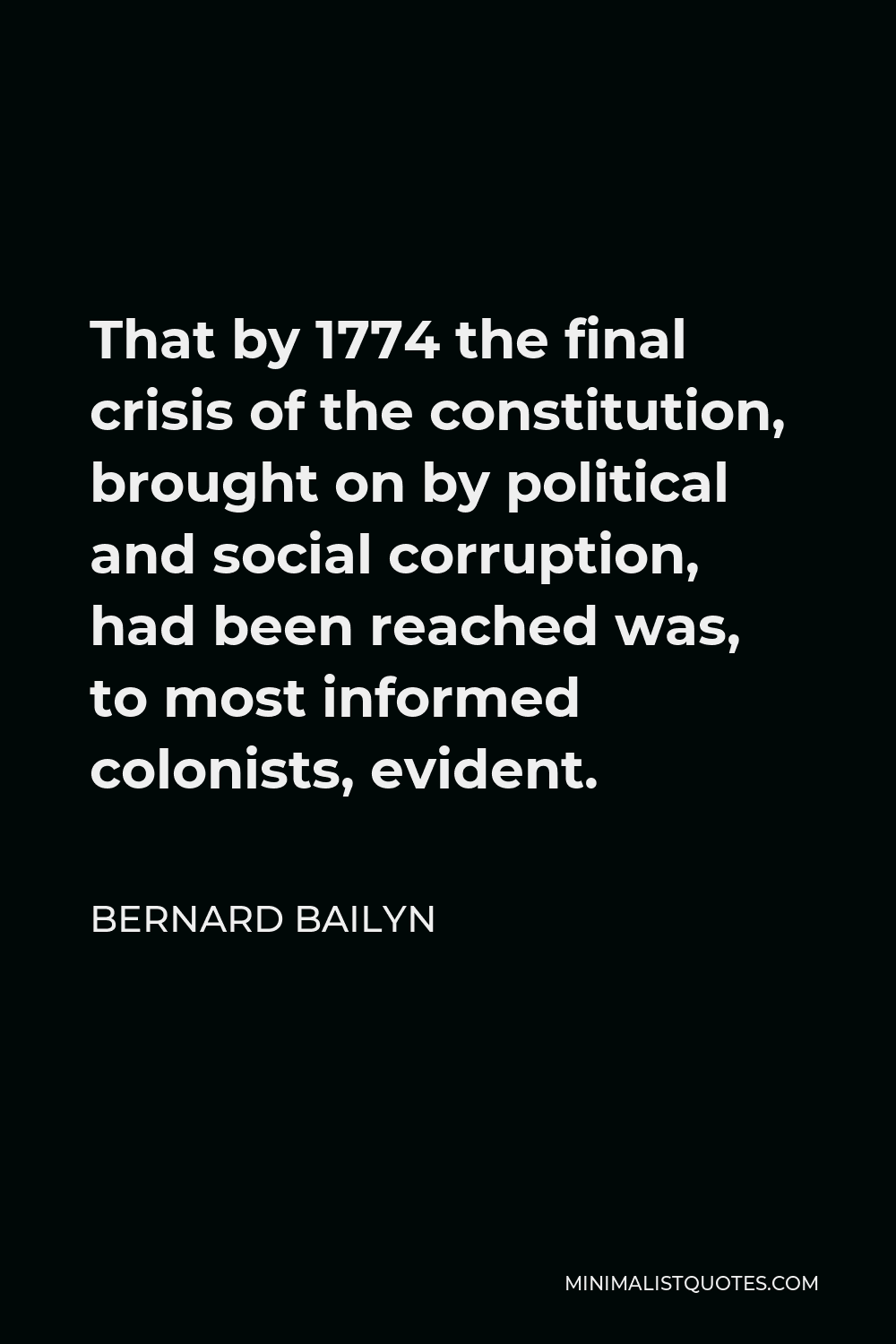
That by 1774 the final crisis of the constitution, brought on by political and social corruption, had been reached was, to most informed colonists, evident.
BERNARD BAILYN -






Not only by Americans themselves but by enlightened spokesmen of reform, renewal and hope wherever they may be-in London coffeehouses, in Parisian salons, in the courts of German princes.
BERNARD BAILYN -





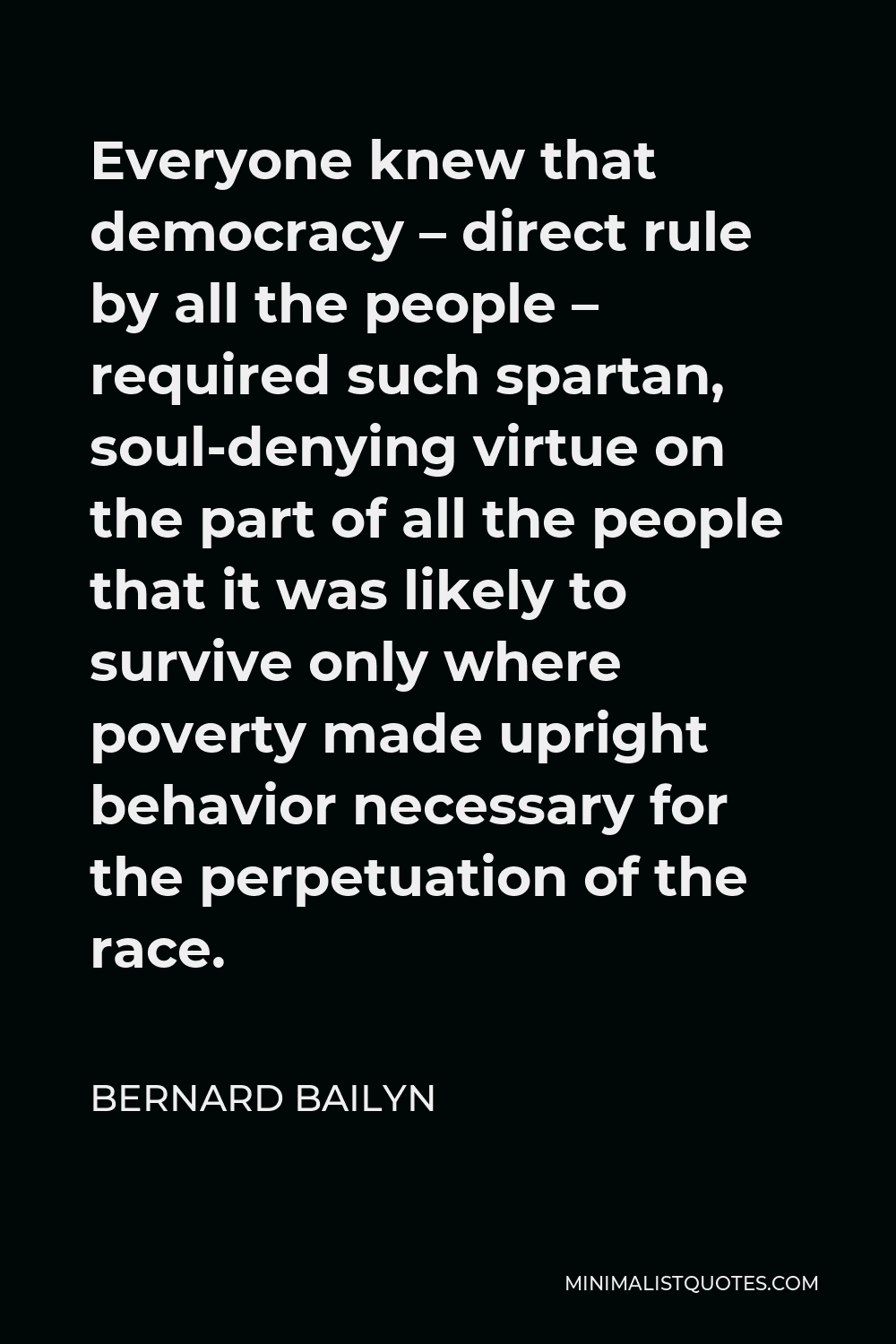
Everyone knew that democracy – direct rule by all the people – required such spartan, soul-denying virtue on the part of all the people that it was likely to survive only where poverty made upright behavior necessary for the perpetuation of the race.
BERNARD BAILYN -





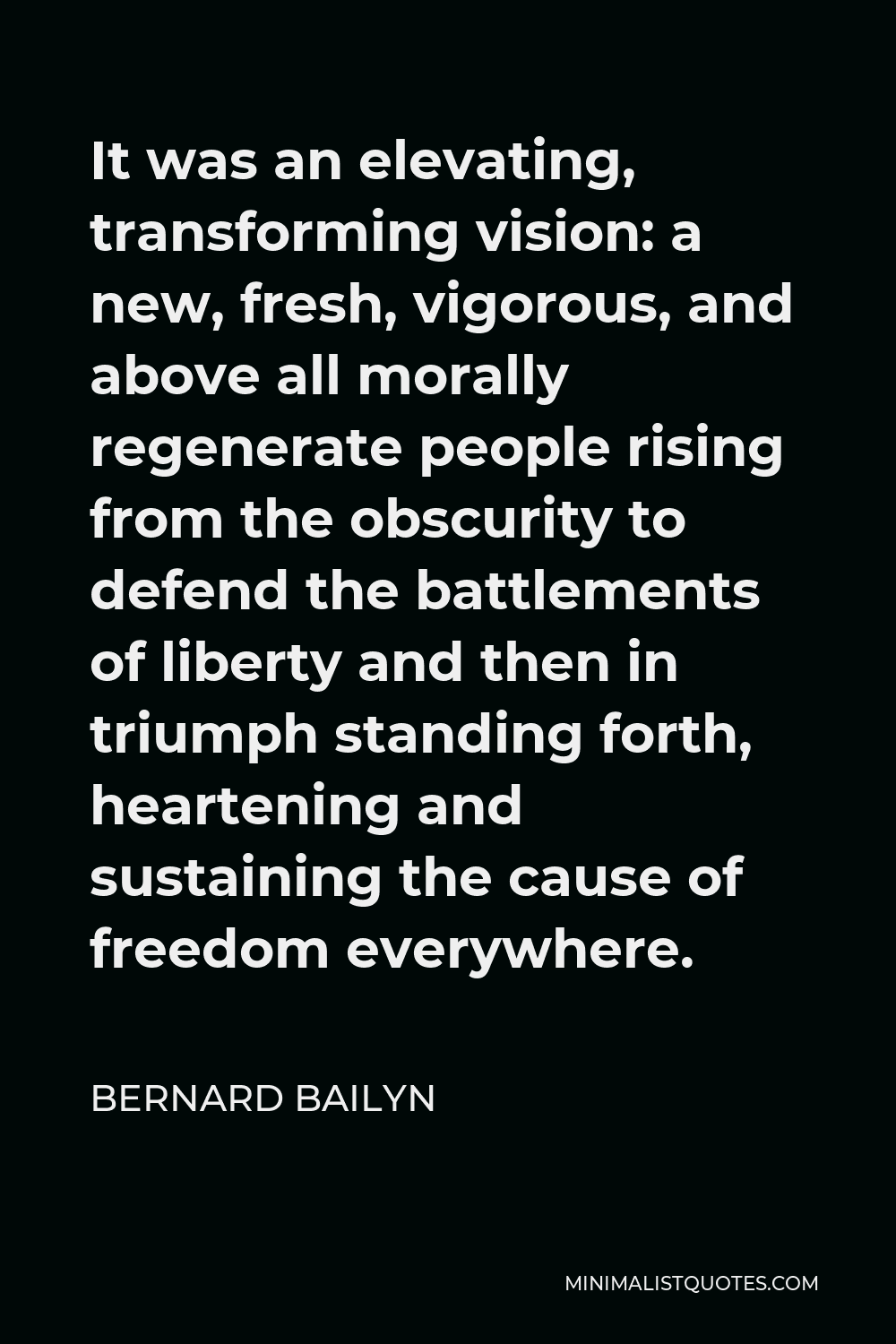
It was an elevating, transforming vision: a new, fresh, vigorous, and above all morally regenerate people rising from the obscurity to defend the battlements of liberty and then in triumph standing forth, heartening and sustaining the cause of freedom everywhere.
BERNARD BAILYN -





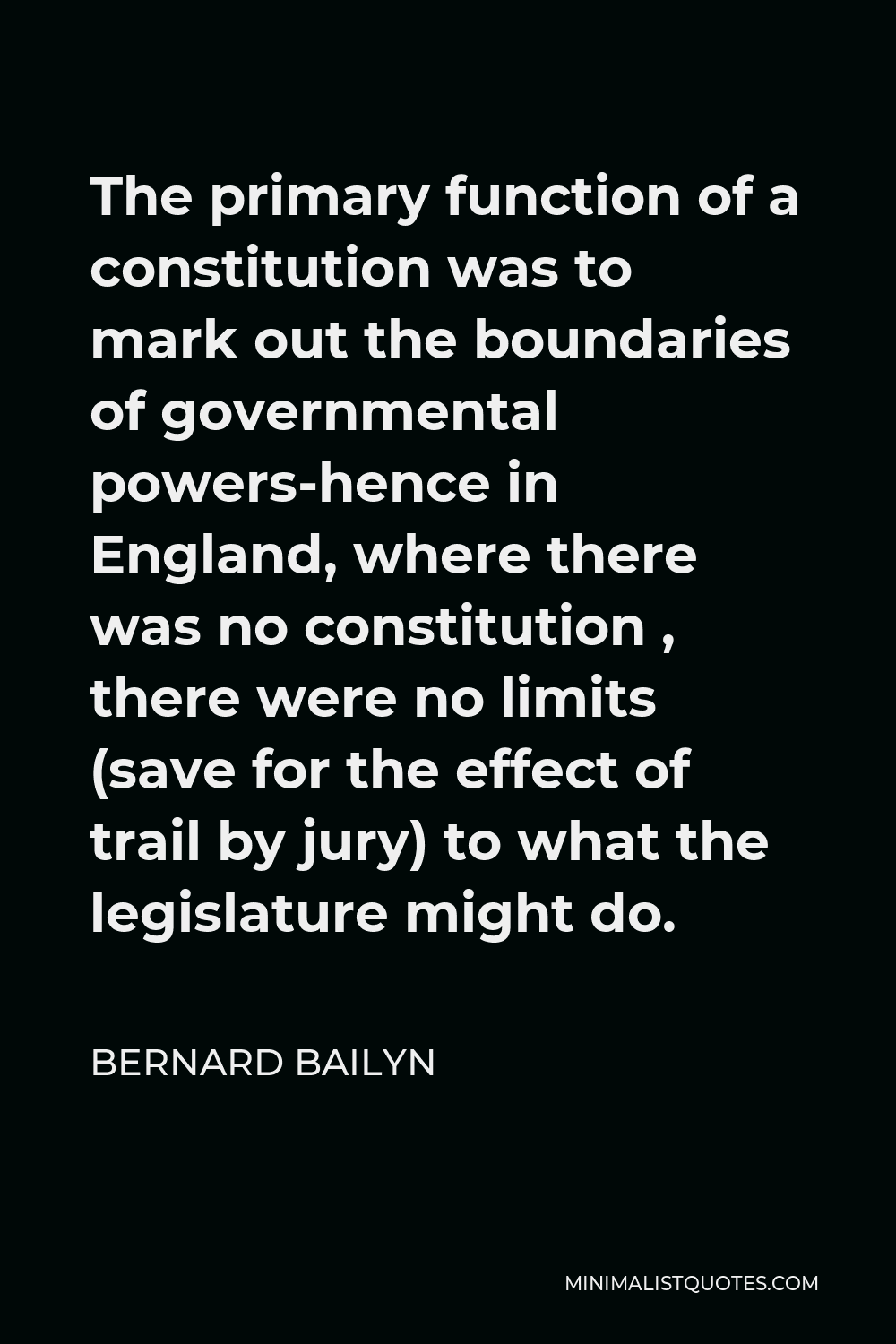
The primary function of a constitution was to mark out the boundaries of governmental powers-hence in England, where there was no constitution , there were no limits (save for the effect of trail by jury) to what the legislature might do.
BERNARD BAILYN -






The full bibliography of pamphlets relating to the Anglo-American struggle published in the colonies through the year 1776 contains not a dozen or so items but over four hundred.
BERNARD BAILYN -






The categories within which the colonists thought about the social foundations of politics were inheritances from classical antiquity, reshaped by seventeenth century English thought.
BERNARD BAILYN -





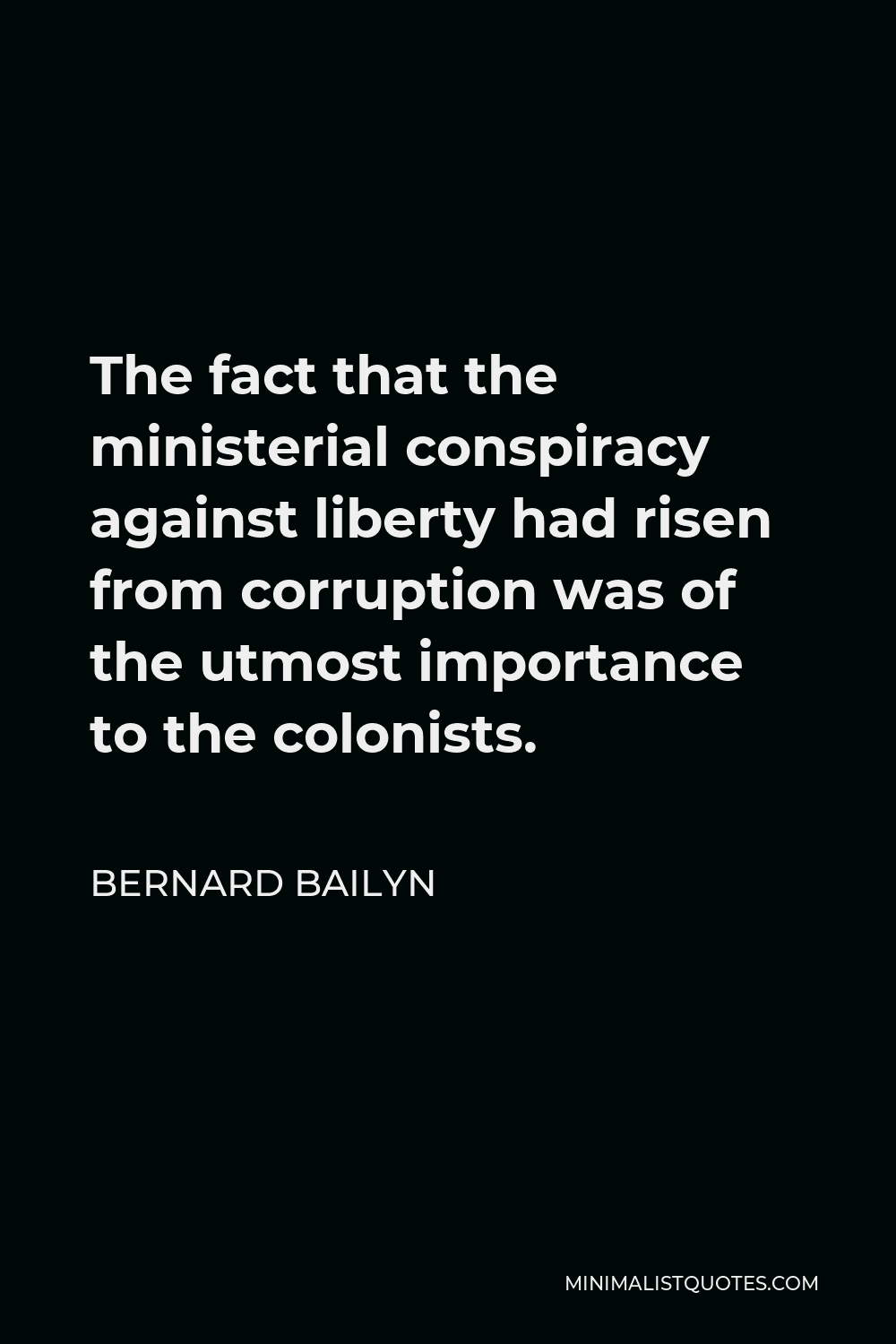
The fact that the ministerial conspiracy against liberty had risen from corruption was of the utmost importance to the colonists.
BERNARD BAILYN -






Instantly available without continuous presence is probably the best role a mother can play.
BERNARD BAILYN -







Defiance to constituted authority leaped like a spark from one flammable area to another, growing in heat as it went.
BERNARD BAILYN -





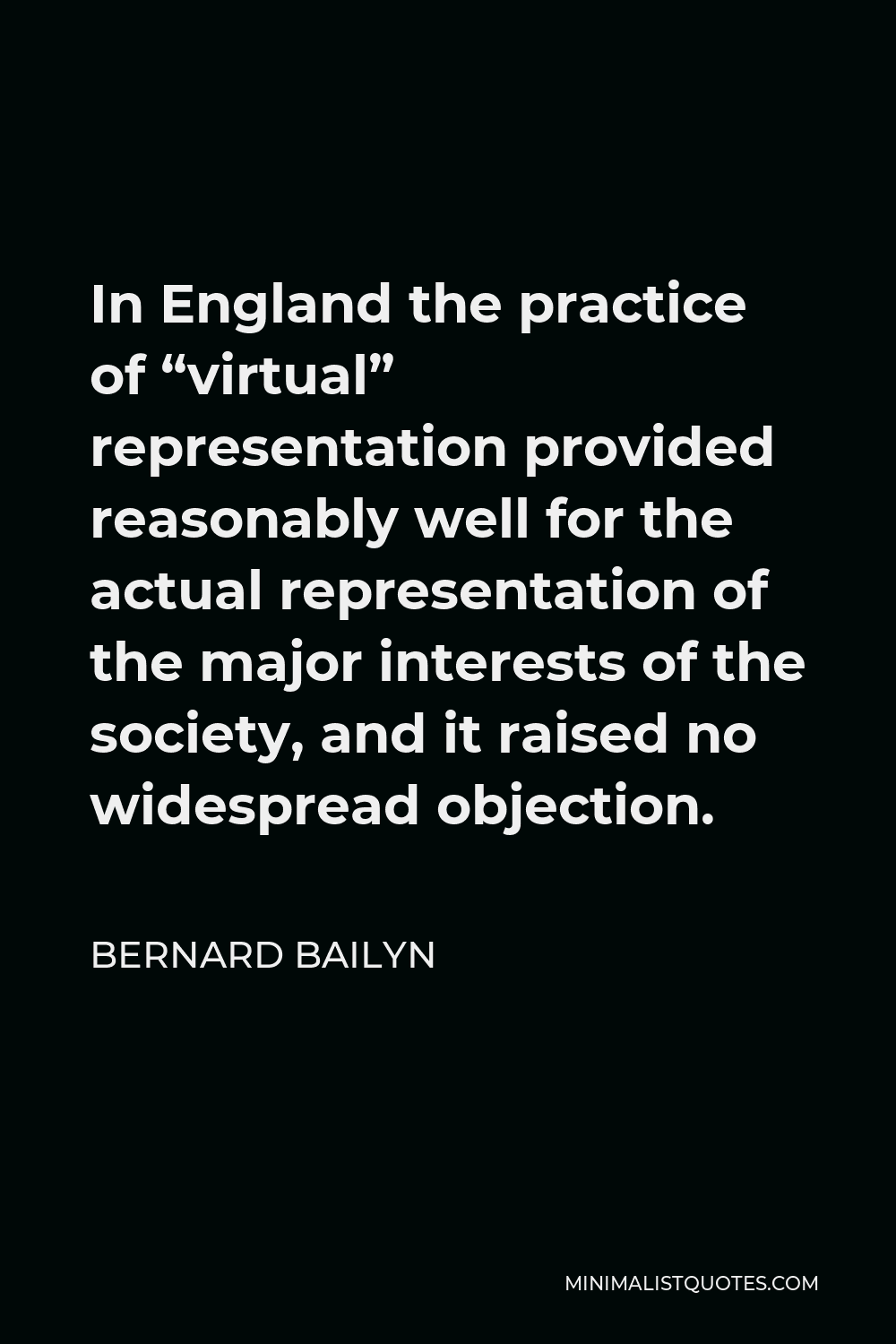
In England the practice of “virtual” representation provided reasonably well for the actual representation of the major interests of the society, and it raised no widespread objection.
BERNARD BAILYN -






Incorporating in their colorful, slashing, superbly readable pages, the major themes of the “left” opposition under Walpole, these libertarian tracts.
BERNARD BAILYN -





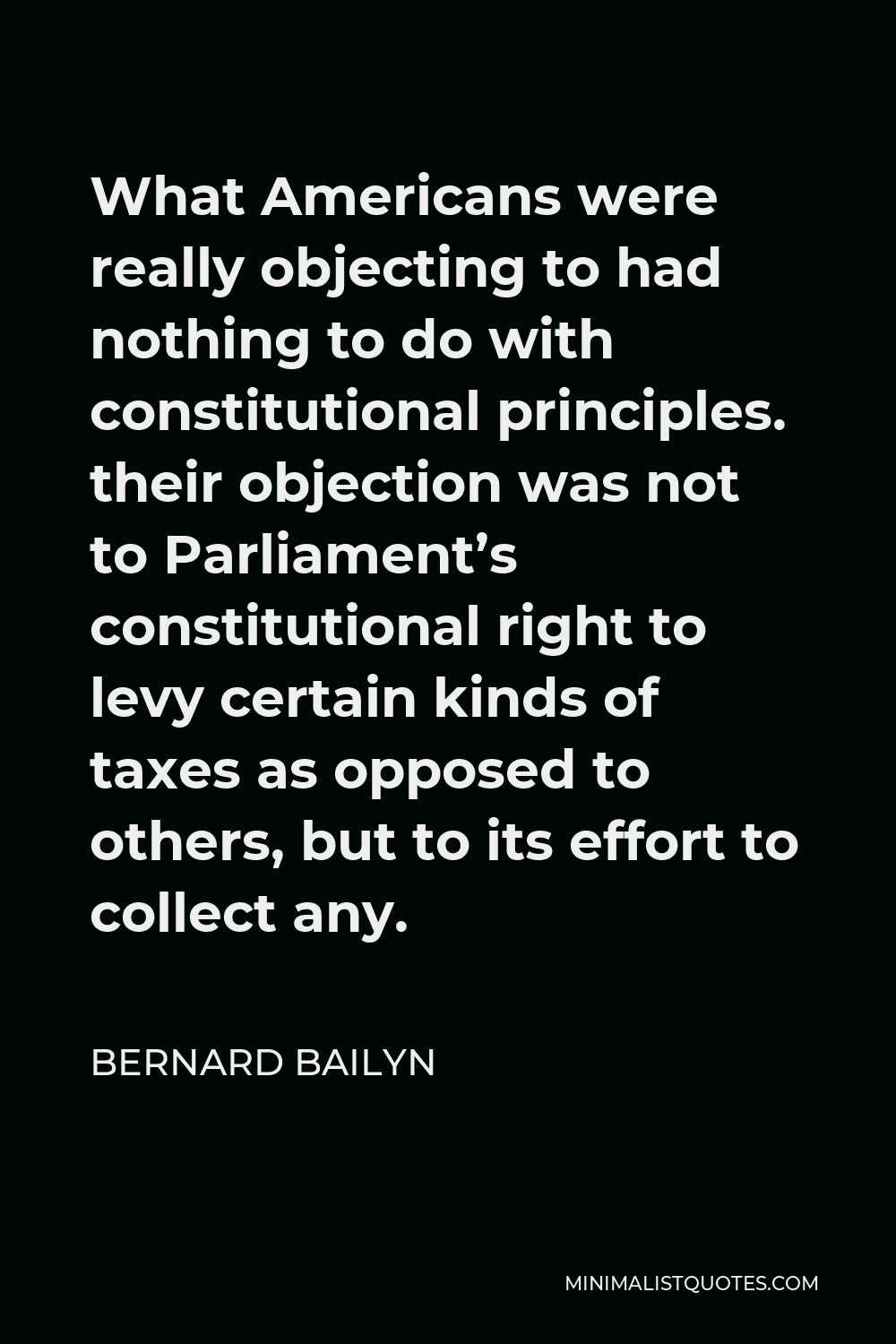
What Americans were really objecting to had nothing to do with constitutional principles. their objection was not to Parliament’s constitutional right to levy certain kinds of taxes as opposed to others, but to its effort to collect any.
BERNARD BAILYN -






The idea of sovereignty current in the English speaking world of the 1760’s was scarcely more than a century old. It had first emerged during the English Civil War, in the early 1640’s, and had been established as a canon of Whig political thought in the Revolution of 1688.
BERNARD BAILYN






